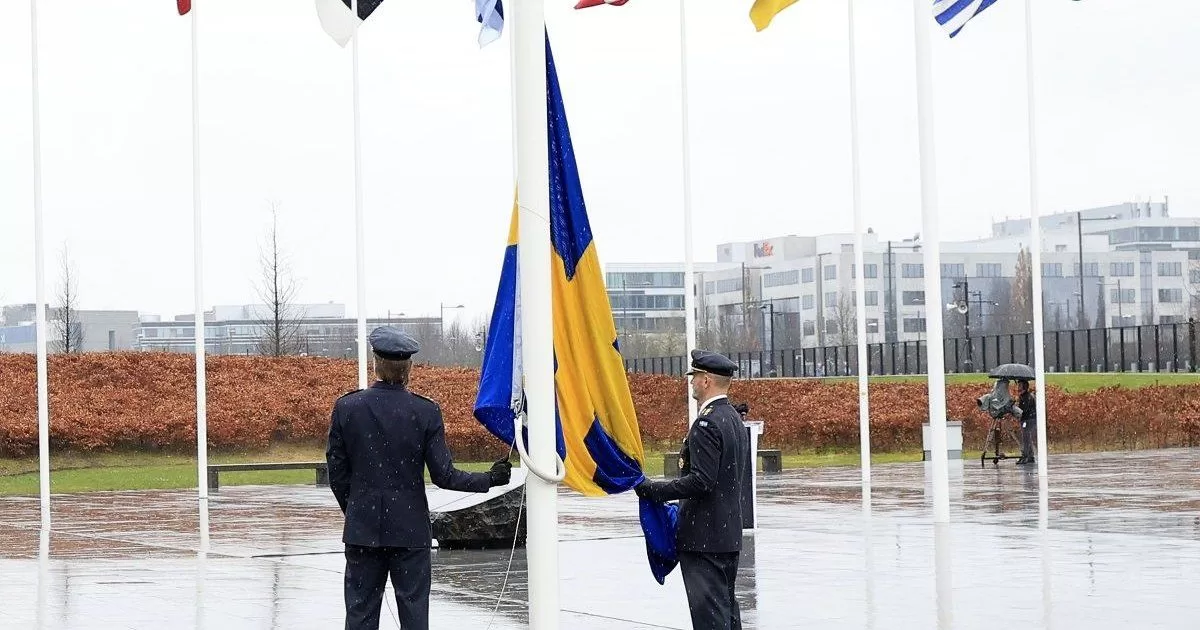But his death, which is suspected of being murder and the tenth reported death of opponents in Vladimir Putin’s 24 years in power, also puts hope against authoritarianism in check, according to the testimonies of his followers.
“Navalni is a symbol, first of all of the opposition, a symbol of hope for a better future for Russia, and there remains a feeling that with his death that hope dies. “If there was a little hope, there is less now than before,” said a Russian woman to a network that consulted people’s reactions.
After almost a decade of complaints against the irregularities of the Putin regime and being harassed, Navalny was reported dead by the Russian Federal Penitentiary Service, this Friday, February 17, reported the official media outlet TASS.
The report spread and replicated by other media indicates that Navalny, 47 years old, felt unwell after “a walk” and lost consciousness in the penal colony, northeast of Moscow. The ambulance that arrived at the center could not revive him, the statement said without specifying the time. And the cause of death is still “being established.”
Navalny against authoritarianism
Alekséi or Alexei Anatolievich Navalny, a lawyer and opposition politician born in Butyn, Soviet Union in 1976, became Putin’s “thorn in the side” in 2019 when he led massive protests by opponents of the regime against the disqualification of opposition candidates. to the Russian municipal elections, scheduled that year.
Eight years earlier, Navalny participated in protests over Putin’s “dubious” electoral victory on December 4, 2011, when he was detained, but was released after 15 days.
In that year, he created the Anti-Corruption Foundation (FBK) to investigate corruption in the Russian government, with supporting documents, and addressed tens of thousands of protesters with messages in favor of reform before the presidential elections in March. 2012 that Putin won
Navalny was already an active protester against Russian authoritarianism, 11 years after joining the United Democratic Party of Russia in 2000, when Putin, a former Russian intelligence agent, first became president of the Russian Federation. Russia.
Since then, the Russian opposition leader was a victim of threats, attacks, trials, and poisoning for nine years until in 2021 the Russian authorities replaced his suspended sentence in 2014 with an effective prison sentence. And Navalny was arrested and imprisoned upon entering Moscow, after being treated for poisoning in Germany.
After being subjected to countless tortures, Navalni is declared dead in prison, after some sarcastic jokes to prison authorities.
Putin’s tenth opponent victim
But Navalny, who also received the Sakharov Prize for Freedom of Conscience in October 2021, does not appear as Putin’s only victim in 24 years, during which time he also ordered the dissolution of protests and democratic social movements.
The most recent list of opponents and critics of the Russian president is:
*2023. Yevgeny Prigozhin, founder of the Wagner mercenary group that participated in the invasion of Ukraine, died in a plane crash northeast of Moscow.
*2022, Vladimir Golovliov, a deputy who initially supported Putin in his rise, but who soon became a staunch critic, was shot dead in Moscow while walking his dog.
*2022. Sergei Yushenkov, a liberal deputy who investigated attacks in 1999 that Putin used to justify the war against the Caucasian republic, but which the legislator suspected were caused by Russian secret services, was also shot in the streets of Moscow.
*2022. Lukoil, Ravil Maganov, president of the Russian oil giant, died after “falling from a window” in the Moscow hospital where he was admitted, authorities reported at the time. The death is considered one of the most emblematic since the beginning of Russia’s invasion of Ukraine.
*2018. Former spy Sergei Skripal and his daughter Yulia, dissidents of the Putin regime, were poisoned with a powerful poison, by alleged Russian agents in the English city of Salisbury. Skripal, who worked for Russia’s Central Intelligence Department, was also a double agent for the British spy service MI6. Arrested in 2004, he was sentenced to 13 years in prison by Russian justice on charges of treason, but was later exchanged for agents detained in the United States. Moscow denied any link to the poisoning, but has not provided further information.
*2013. Boris Berezovsky, businessman financier of Putin’s first presidential campaign, He was found dead in his residence in England in 2013, and although there were reports of possible suicide, the businessman suffered several attacks in his exile while he was being judicially persecuted in Moscow. Berezovsky had disagreements with Putin when the Kremlin seized the television station he owned.
*2006. Anna Politkovskaya, a Russian journalist, was murdered after she denounced human rights violations by Kremlin troops in Chechnya from the Russian newspaper Novaya Gazeta. Five suspects were prosecuted, but the case was filed in 2021.
*2006. Alexander Litvinenko, a former Russian spy who reported that he had been ordered to assassinate oligarch Boris Berezovksy, died of polonium-210 poisoning in a London hospital after falling suddenly ill, an investigation was established.
It is estimated that at least half a dozen oligarchs, former Russian officials and dissidents abroad have died in unclear circumstances, including since the start of the invasion of Ukraine.
“Putin’s message over the last two decades has been clear: opposition will not be tolerated and will have fatal consequences,” warned University of Birmingham professor Stefan Wolff in an article cited by the BBC.
Source: With information from Infobae, CNN, BBC Mundo


